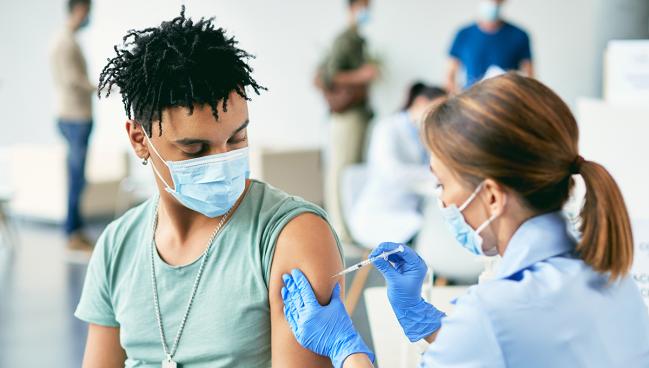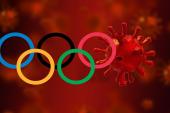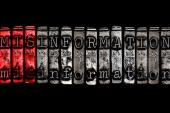Data Fail to Support Link Between COVID-19 Vaccines and SCD in Young People
Based on Oregon death certificates, the study is comforting, and vaccination is “overwhelmingly safe,” one expert says.

A review of death certificates in Oregon failed to turn up evidence of a greater risk of sudden cardiac death among individuals ages 16 to 30 who had recently received a COVID-19 vaccine, researchers report.
Of three deaths possibly related to cardiac causes in this age group that occurred within 100 days of getting vaccinated, two were attributed to preexisting chronic conditions. For the third, the cause was undetermined, and a potential link to the vaccine could not be confirmed or excluded.
“These data do not support an association between receipt of mRNA COVID-19 vaccine and sudden cardiac death among previously healthy young persons,” Juventila Liko, MD, and Paul Cieslak, MD (both from the Oregon Health Authority, Portland), conclude in a paper published recently in Morbidity and Mortality Weekly Report.
“COVID-19 vaccination is recommended for all persons aged ≥ 6 months to prevent COVID-19 and complications, including death,” they add.
In the months after COVID-19 vaccines started rolling out in late 2020, reports of myocarditis following receipt of the mRNA-based shots emerged around the world. A greater risk of myocarditis with these vaccines, particularly in younger males, was confirmed in subsequent studies, which highlighted the rarity and relatively benign course of the complication.
Still, Liko and Cieslak say, this risk raised concerns about the possibility of vaccine-related cardiac deaths. They note that reports about sudden deaths among previously healthy young athletes, with some purported to be tied to COVID-19 vaccination, started to spread in the media. Generally, though, there has been no strong evidence to support such a link, which has been deemed “misinformation.”
As of July 17, 2023, there were no fatal cases of myocarditis reported out of Oregon to the federal Vaccine Adverse Event Reporting System (VAERS) but, Liko and Cieslak point out, that system—which relies on passive reporting—likely underestimates adverse events associated with vaccination.
To explore the issue, they searched death certificates for Oregon residents ages 16 to 30 who died between June 2021 and December 2022 and then matched any deaths with records from the state’s ALERT Immunization Information System, which collected data on COVID-19 vaccination during the pandemic. Of note, between May 2021 and December 2022, nearly 980,000 doses of COVID-19 vaccine were administered in this age group in Oregon.
I don’t think anybody should be scared about getting the vaccine and we’re not seeing any evidence that it leads to serious sequalae due to myocarditis. Thomas Maddox
Of 1,292 identified deaths, COVID-19 was listed as the cause for 30 (2.3%) and a noncardiac diagnosis was listed for 89.9%. For the 101 remaining deaths (7.8%), the researchers could not exclude a cardiac cause. Of these, 88 had matching records in the immunization database—three of the individuals had received an mRNA-based vaccine within 100 days of death.
Two of the deaths were attributed to chronic underlying conditions:
- One male, who died 21 days after vaccination, had morbid obesity, type 2 diabetes, and obstructive sleep apnea. The cause of death was listed as congestive heart failure related to hypertension.
- One female died 4 days after vaccination. The manner of death was recorded as natural, with the immediate cause “listed as undetermined but as a consequence of chronic respiratory failure with hypoxia attributed to mitral stenosis.”
The third individual who died had received the COVID-19 vaccine 45 days earlier. The recorded cause of death was “undetermined natural cause,” and follow-up with the medical examiner could not confirm or exclude the possibility that the death was due to a vaccine-related adverse event.
None of the death certificates examined as part of the study listed vaccination as the cause of death.
To put the potential cardiac risk of COVID-19 vaccination into perspective, the investigators note that a study using electronic health records from 30 US healthcare systems demonstrated that the risk for cardiac complications was significantly higher after COVID-19 itself than after receipt of an mRNA-based vaccine among individuals 5 years and older. In addition, during the first 2 years of COVID-19 vaccine availability in the United States, vaccination prevented an estimated 18.5 million hospitalizations and 3.2 million deaths, according to an analysis by the Commonwealth Fund.
Liko and Cieslak acknowledge that the study can’t exclude the possibility that vaccine-associated deaths occurred more than 100 days after vaccination and that the small size of the study population makes it less likely to see a rare vaccine-related side effect among younger people.
Despite the limitations, though, Thomas Maddox, MD (Washington University School of Medicine, St. Louis, MO), said “it is comforting to see that the rare cases of myocarditis that we know can sometimes occur with COVID-19 vaccination don’t appear to translate into anything super concerning like cardiac-related death.” Regarding the analysis, he added that “by and large, it’s consistent with the rest of the evidence that we have to date that COVID vaccine-related myocarditis appears to be very rare and pretty self-limited.”
To TCTMD, Maddox said the decision to get vaccinated against COVID-19 has to take into account one’s own assessment of the relative risks and benefits.
“There’s multiple reasons to consider getting the vaccine, but at the end of the day, it’s a nuanced decision and you kind of have to work with your doc, and in this case your kid, to say what are the pros and cons, and then make a decision that makes sense for you,” he said.
His general message regarding the cardiac safety of COVID-19 vaccination is that “it’s overwhelmingly safe. I do not have concerns for any person of any age or sex in getting the vaccine and I’m really glad that we have it available to us. And I do think it’s important to think not only about protecting yourself, but protecting the community where you are.”
Overall, “I think it’s a very good decision to get the vaccine,” Maddox said. “If somebody is really healthy and isn’t in a place where they might spread it to others and they feel like they would want to hold off on the vaccine for now, I don’t think it’s an unreasonable decision as long as it’s being made in consultation with your doc. But by and large, I don’t think anybody should be scared about getting the vaccine and we’re not seeing any evidence that it leads to serious sequalae due to myocarditis, and this report certainly doesn’t contradict that.”
Todd Neale is the Associate News Editor for TCTMD and a Senior Medical Journalist. He got his start in journalism at …
Read Full BioSources
Liko J, Cieslak PR. Assessment of risk for sudden cardiac death among adolescents and young adults after receipt of COVID-19 vaccine – Oregon, June 2021-December 2022. MMWR Morb Mortal Wkly Rep. 2024;73(14):317-320.
Disclosures
- Liko and Cieslak report no relevant conflicts of interest.





Comments